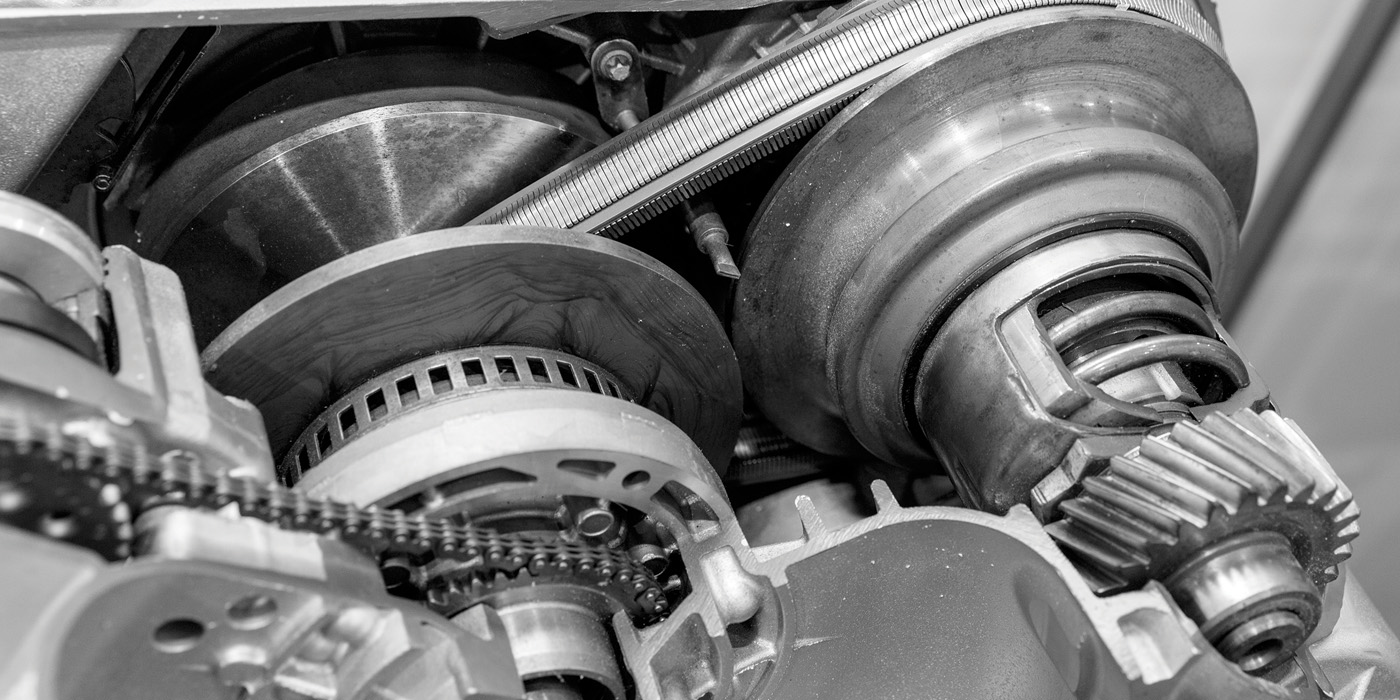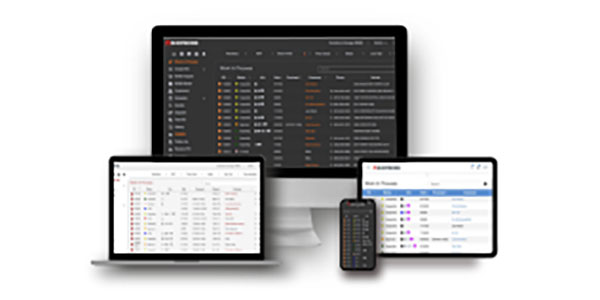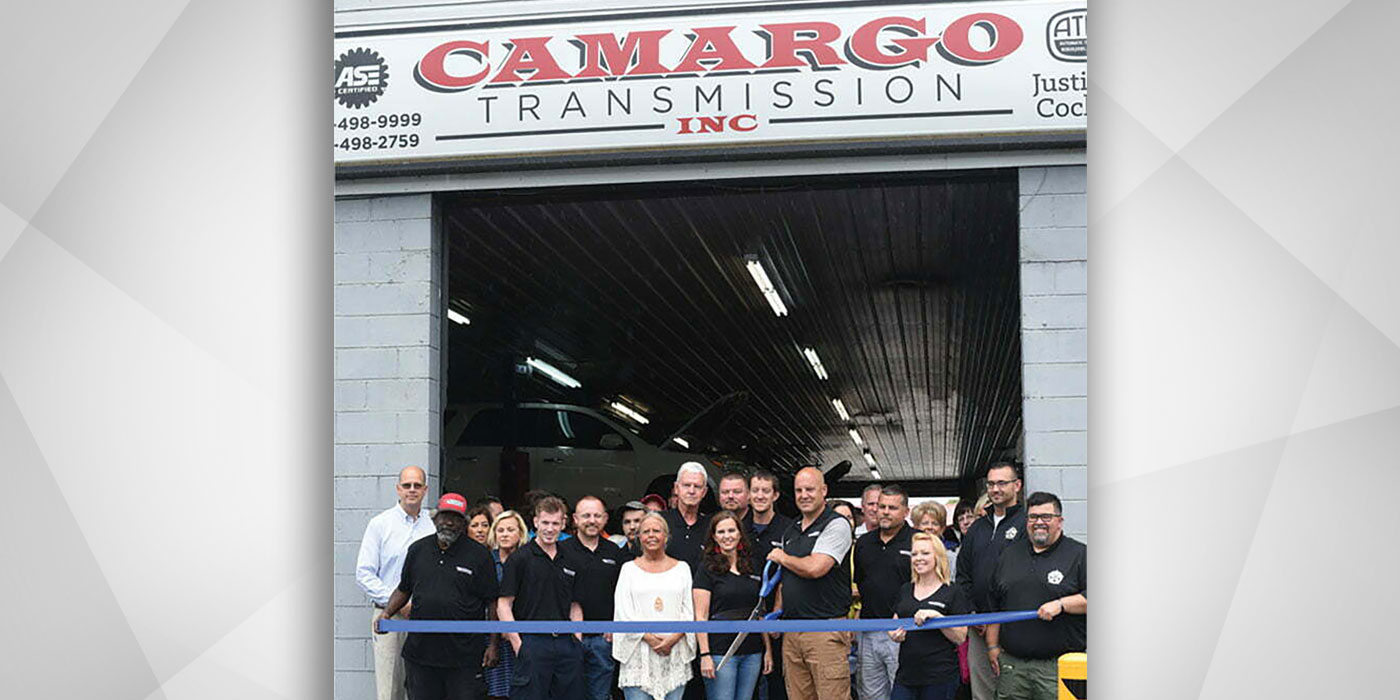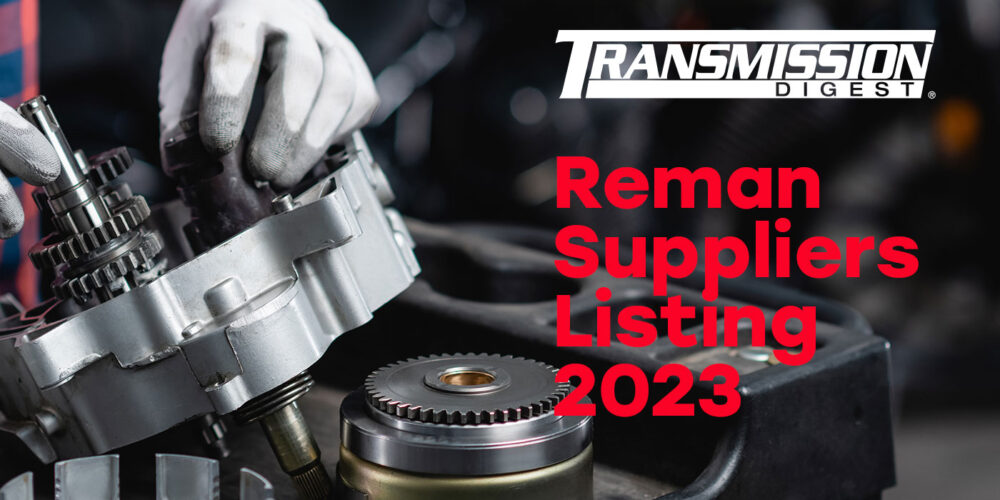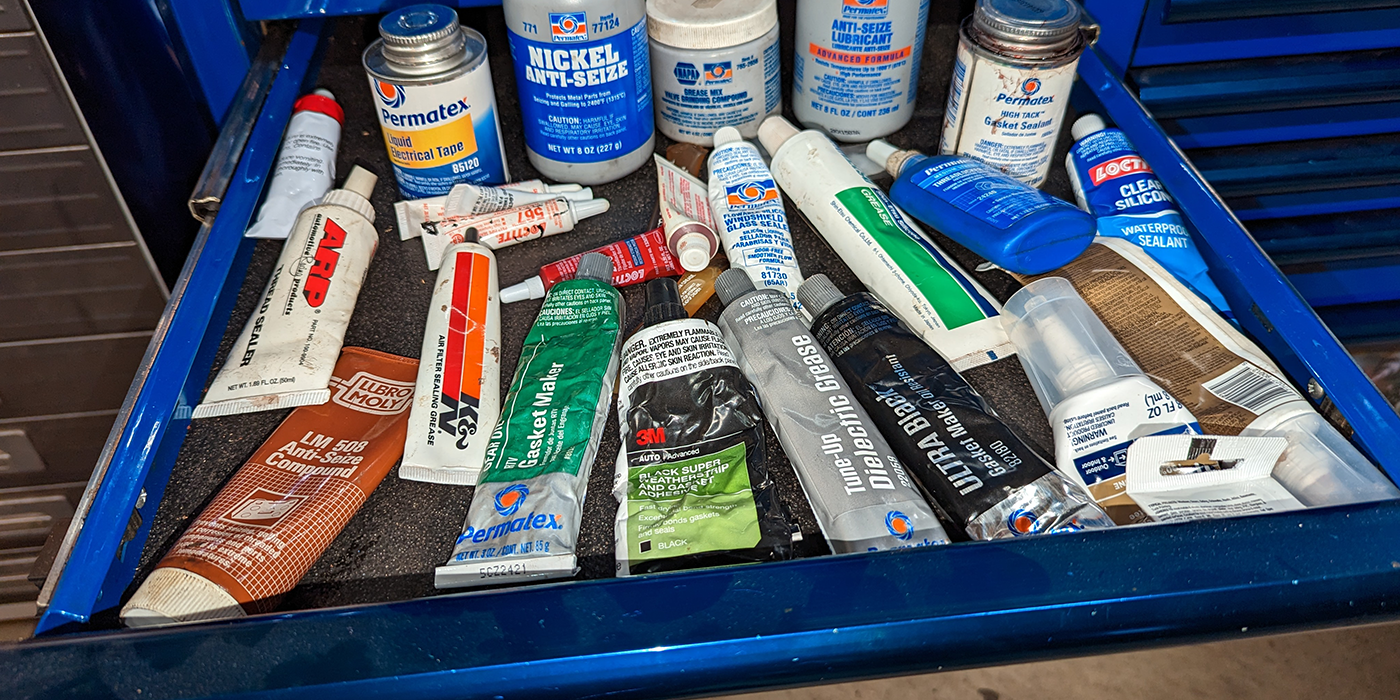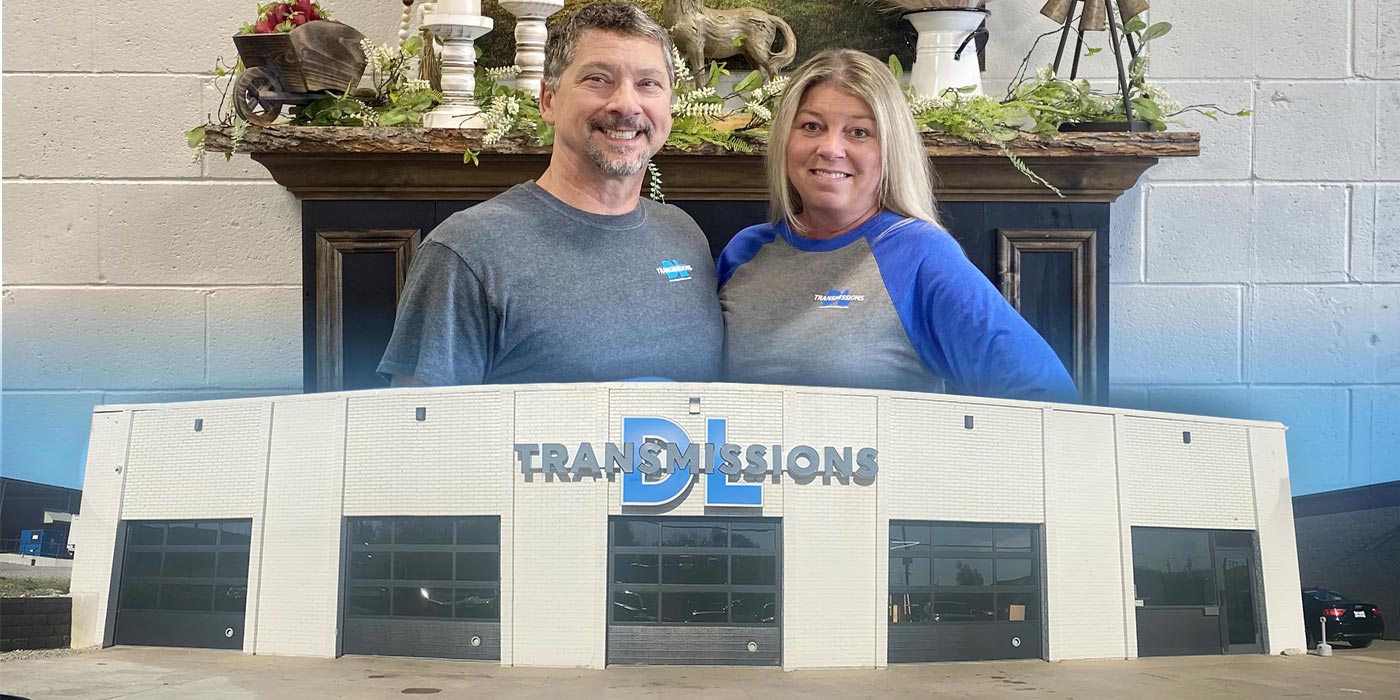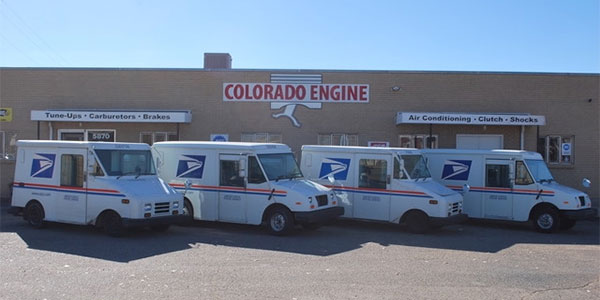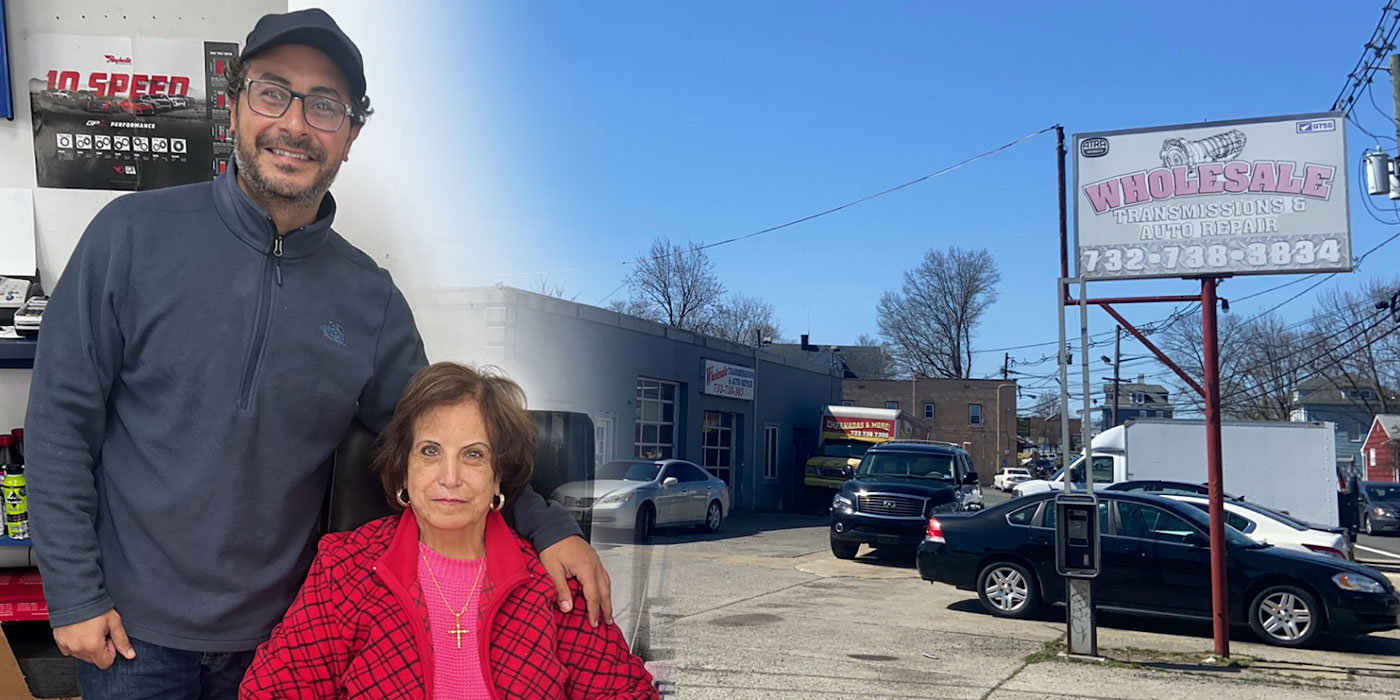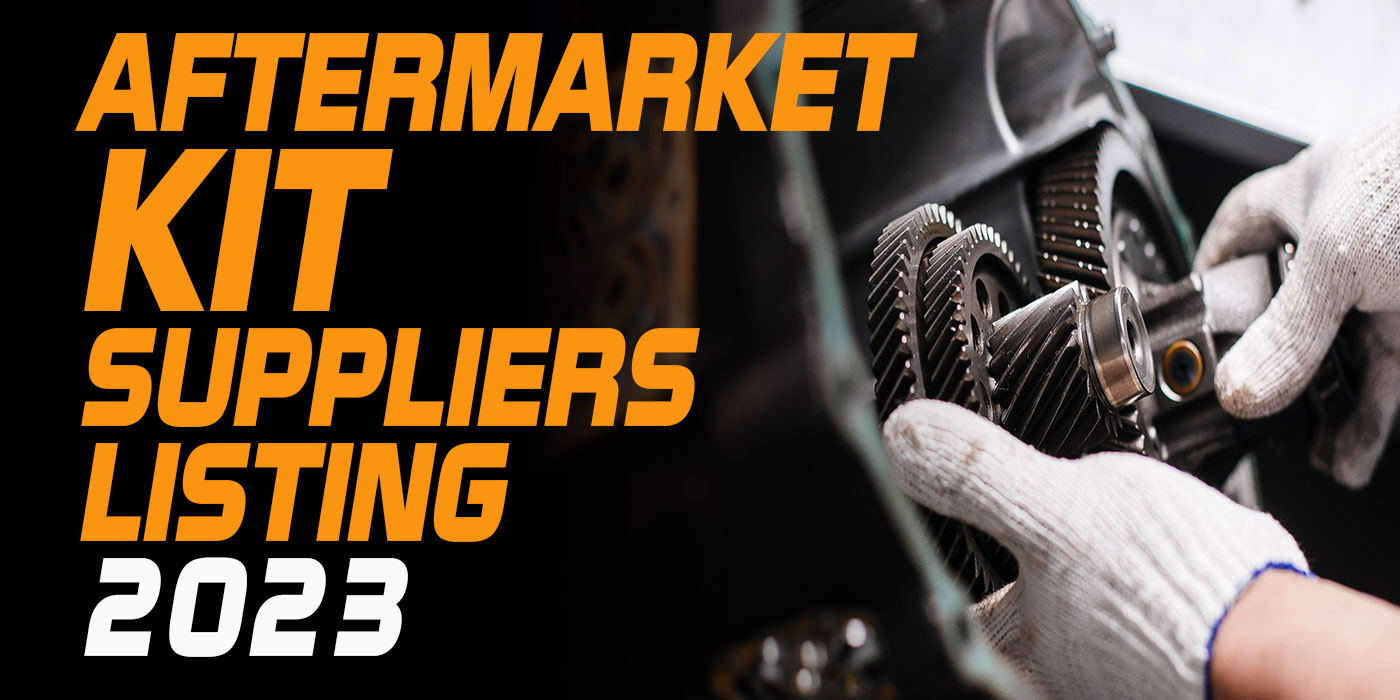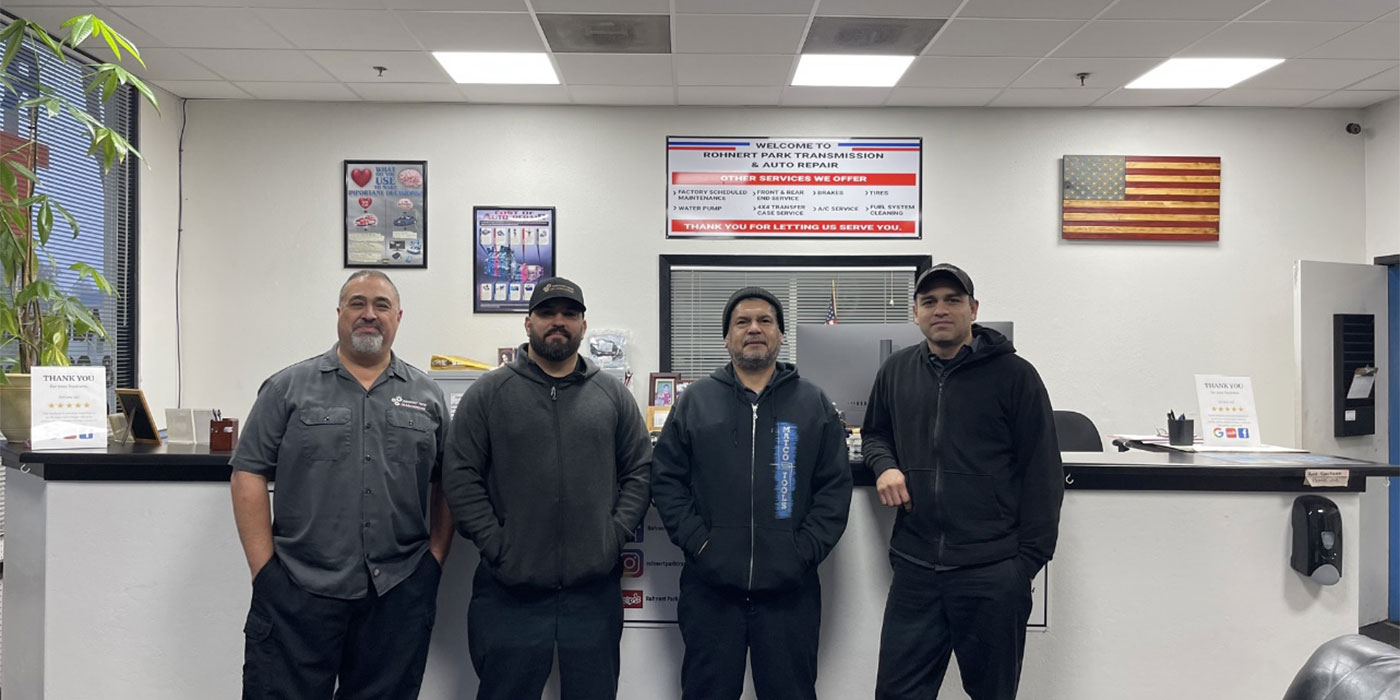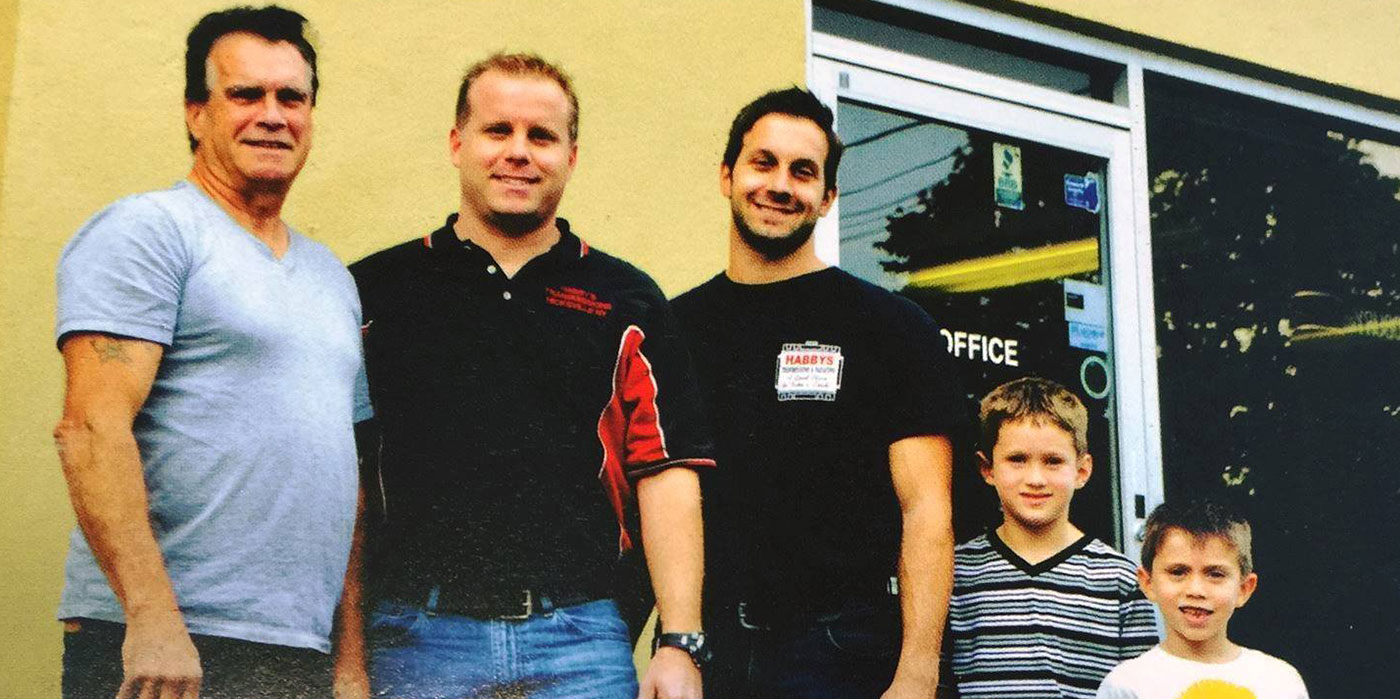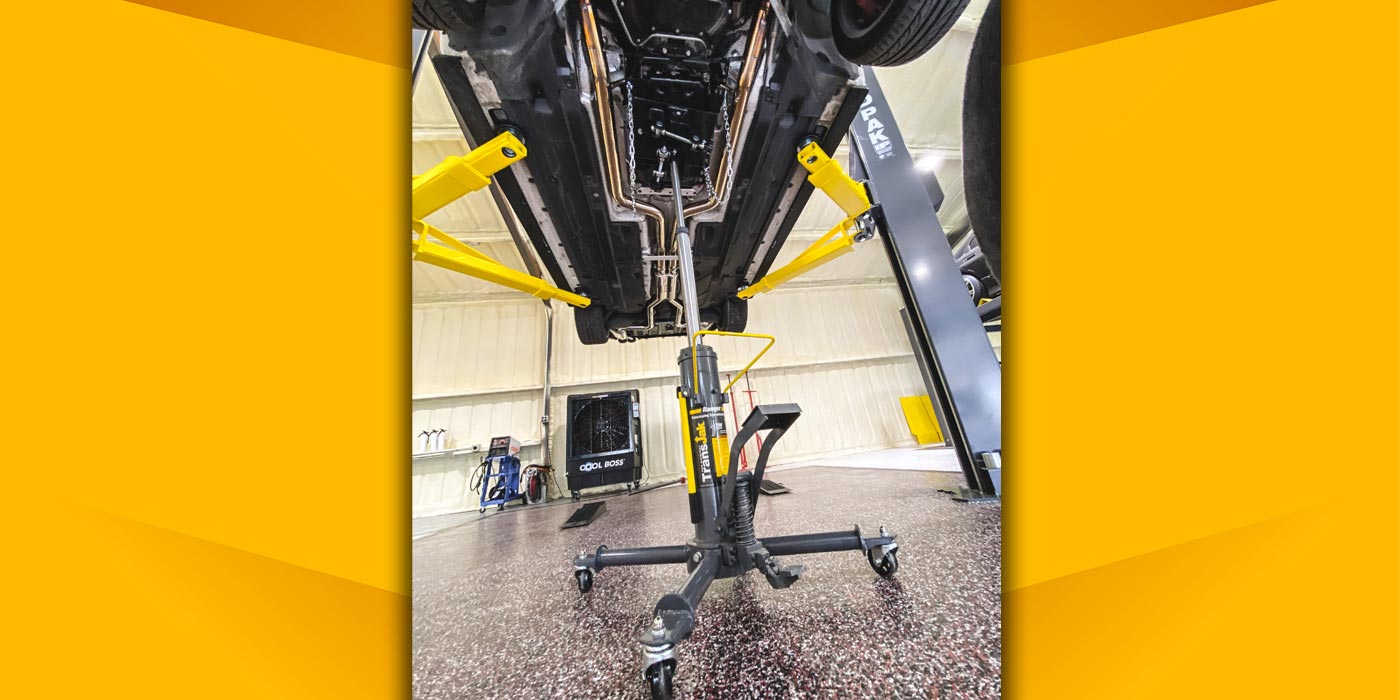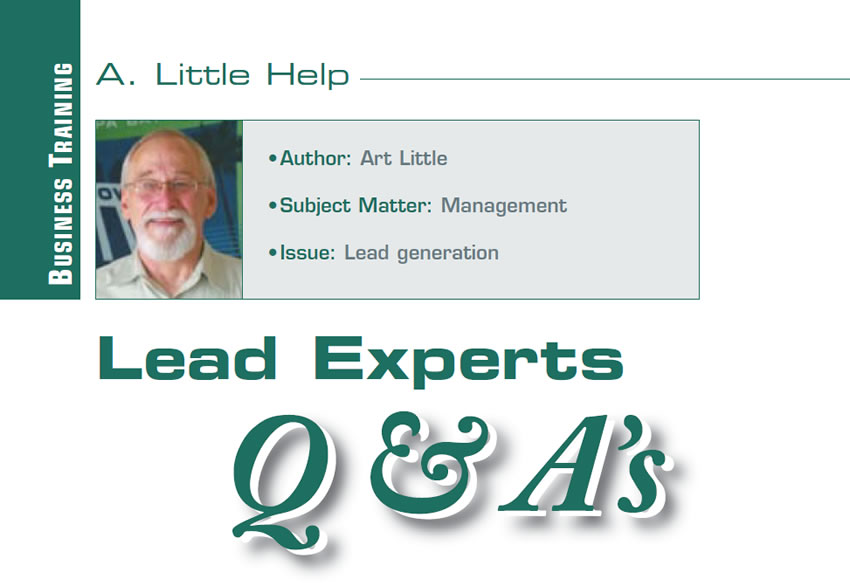
A. Little Help
- Author: Art Little
- Subject Matter: Management
- Issue: Lead generation
How do I get more leads? I remember the good old days when you just found a good location and advertised in the only phone book in town. The only other decision was how big to make your ad. Yes, those were the days. It was easy money. However, those days are long gone, and if you are not tuned in to where the leads are and how to get them, you could be losing leads to your competition. The shops that have the latest technology working for them are probably getting to your customers first.

Marketing is a complicated game now and requires skill sets most shop owners do not have. It is continually changing and requires time to keep up with and implement the dynamic marketing strategies available to shop owners. We are experts in transmission repair, not lead generation. So this month, I went to the marketing experts and asked some basic questions to which we all need the answers. I interviewed Brian Sax and Craig Pollack with Trackable Response Inc., which specializes in transmission-repair lead generation.
Here are the questions and answers:
How much should I be spending on marketing and advertising?
This is probably the most-difficult question to answer. Every shop is different. How many bays do you have? How many qualified technicians? Are you open five days or seven days? What is your weekly average volume and how much profit do you make on each large transaction? The list of questions can go on.
But, regardless of all the variables, your budget needs to be spent wisely. Whether your shop does $1 million a year or double or triple that amount, you want to make sure the money you spend has a positive return on investment (ROI). Nobody likes to throw away money.
To know whether you are getting a positive ROI, you must have good tracking on each marketing expense. Whether you are doing newspaper ads, radio, Internet, website, direct-mail or direct-email marketing, you should try to collect data on where your customers learn about your services. Knowing which expenditures in your budget bring you the most high-margin customers allows you to focus on the channels that work and eliminate (or scale back) those that are less productive.
If you knew that $10 spent on one type of marketing would consistently bring you profit of $20 and another type only $15, you would shift your spending to the more-profitable program. However, what if you can’t spend more on the more-profitable type of marketing? Should you continue to do both? Maybe. Or, maybe you should allocate some of the money you are spending on the less-profitable activities to try something new and yet unproven. Only by testing, constantly testing, will you find the marketing that might return $30 or $40 of profit for every$10 spent.
We see many shops keep doing the same tired, old things that they did five and 10 years ago even though the results no longer justify the expense.

What marketing/advertising platforms will give me the best results?
Again, there are variables to consider. In some situations radio and local TV might be a smart investment. In other markets, everybody reads the hometown newspaper and a small ad on the back page might be the best way to promote your services.
A smart strategy is to test a lot of different things. If you are already doing several things, consider stopping one for a month or two to see whether your business drops. Be careful. If you don’t have good systems in place for tracking where your customers are coming from, you might not get accurate data. Also, be careful that your tests take into account the season, weather and other factors that could give you confusing results.
Keep in mind that what worked for you five or 10 years ago might not work today. The iPhone was introduced in 2007, and that sparked the mobile Internet revolution. You, as a transmission-shop owner, might not own an iPhone or Android smart phone, but most of your potential customers do. When their transmission is giving them problems, they are increasingly likely to try to find help by searching on their mobile phone or tablet computer. Phone books are dead; that is why most phone-book companies are now packaging your yellow-page ad with websites and other Internet advertising.
Do you have a website? Even a simple one can be an inexpensive way to drive more customers to your shop. If you have a website are you making the most of it? Is it clean and simple to navigate? Do you make it easy for consumers to understand the services you provide? Do you make it easy for visitors to find your phone number, address and hours? If you offer free towing or free estimates, is that clear and easy to find?

I am on a budget; what can I do that is inexpensive?
First thing you can do is to make sure you take advantage of every opportunity that is coming your way. Evaluate how you and your staff answer the phones. Are you cheerful and welcoming, or do you treat phone calls as a disruption to your day? Are callers frequently backed up on hold, or do you tackle the calls quickly and efficiently?
Second, do you invite your customers to try additional services? If your shop does more than transmissions, do you invite customers back for these other services by offering a discount? Do you put your customers’ email addresses in a drip email campaign?
Even if you don’t offer other services, there are dedicated tire, muffler or quick-lube shops (that don’t compete with you) that would be happy to have the extra business. You can swap leads with them, or you can set up a coupon system where you get paid a commission for every coupon redeemed.
The Internet can be another inexpensive marketing opportunity. A lot of shops are intimidated by the Internet and may have been ripped off by one of the many companies that make bold promises to naïve shop owners. The Internet does not have to be expensive or complicated. A simple and effective landing page can be created with very little cost or effort. If you want to build your own website there are a number of free sites to do this. Just make sure you use the KISS principle (keep it simple, stupid).
You want to feature your shop name. Provide visitors a clear understanding of the services you provide and give them three ways to contact you: telephone, email and your address. Avoid the temptation to get too fancy and have too much information. Most consumers who need transmission repair are just looking for a quick and easy way to call your shop. Add a YouTube video to increase clicks and website visits.

I spent all this money on a website and my business has not gone up one bit. What am I doing wrong?
Several times, we have talked about websites and how they can be an inexpensive yet effective way to drive business to your door. Think about this. If you run an ad in the newspaper and 1,000 people see your ad, what are the odds that one of them has a major transmission problem right now? But, the newspaper is charging you for every eyeball. In fact, they are charging you based upon their total circulation, which is probably much higher than the number of people who will actually see your ad.
Now think about a website. It is a billboard in the desert. It sits there and nobody ever sees it –until they do a web search for a relevant term such as “transmission repair (your town).” Whether the consumer uses Google, Bing or Yahoo, they will now see websites that are relevant to the search terms. If your site is judged to be most relevant, you will show up at the top of the search.
The challenge is to know how to make your website relevant so it shows up at the top of most searches. This is called search-engine optimization (SEO). There are tons of articles, books and classes on SEO. Unfortunately, the big search engines keep changing the formula. Keeping up with SEO trends is not easy.
Even if your website is being search-engine optimized right now by a web expert, some of your competitors will swoop in and steal some of your phone calls and customers by paying the search engines to be featured at the top of the search results. This is called pay-per-click (PPC).
Be careful with PPC. If you hire a PPC expert, your costs could sky-rocket. Most PPC experts don’t know your industry or your local market. They also make money only by managing your campaign. The more you spend, the more they make. This gives many PPC experts a perverse incentive to do mediocre work. If you are not getting the results you expect, they are likely to tell you that your budget is too small and you need to spend more.

Talk about Facebook, PPO and SEO. I hear about them, but I donʼt know what I can do to capitalize on these things.
Today, you can take advantage of all three to drive more traffic to your website, but remember: What you really want is more traffic in your shop. So, your website must be properly configured and laid out to take advantage of the increased traffic. Remember to provide the basics: what you do, where you are and how to contact you – your phone number.
Most shop owners are far too busy to run their own SEO and PPC campaigns, and Facebook can be a dangerous time suck for those unfamiliar with the tips and tricks. It is advisable to hire outside help to manage these things, but it’s just as important that you trust the people you work with.
It is far too easy for a transmission-shop owner to get ripped off by a third party that promises to raise your website’s search-engine ranking or drive traffic using pay-per-click campaigns. If you decide to outsource, make sure the person has experience in the transmission or automotive industry. Check references, and establish clear goals and budgets in advance.
Make sure you build in tracking strategies to carefully measure results. Also, be wary of vendors that want you to sign long-term contracts. A vendor that believes in the quality of its work will let you cancel or reduce your budget.
Our company offers a lead service that takes a lot of these worries off your shoulders. We provide leads using advanced SEO and PPC techniques, and our leads are tracked. Since we don’t lock our clients into a contract, we are held accountable every month for our results. We are not the only way you can affordably take advantage of the Internet, PPC and SEO, but if I were a shop owner I would never do business with anyone who could not provide me the same level of comfort.

We get a lot of calls, but not a lot of business. What can we do to improve our conversion rate?
As I talk with shop owners, this is one of their biggest questions. Some shops tell me they don’t want to buy leads or pay for new marketing because the customers all want something for free or want to price-shop.
The first thing I ask them is to analyze who answers the phone and how they talk to customers. Do you ask callers for their name, phone number and type of vehicle?Do you record calls and review how the customers and employee interact? Do you have a script for your staff?
It is very valuable to think about the typical call. Most customers are not transmission experts. All they know is their usually reliable vehicle is not performing the way it should and that it is probably going to cost them a lot of money. They just want to know how much it will cost.
It is important for your staff to build the caller’s trust and give them confidence that your people are experts and can diagnose the problem. Your staff’s top priority should be to get an opportunity to inspect the vehicle before quoting a price. Do you schedule an appointment for them to bring the car in? Do you offer a free tow? These techniques will change the tone of the phone call.
As soon as you quote a “worst case” price over the telephone, you are giving the caller permission to contact another shop or two so they can base their purchase decision on the lowest price.
By not quoting a price, you risk that customer skipping over you and dealing with another shop, but you are a professional and an expert, and you don’t want to get into a bidding war with your competitors. Everybody loses in those situations. You may end up with fewer customers, but your prices and profit margins won’t be deteriorated by the price war.
Regardless of how you advertise, you are going to get a certain number of calls from people who simply want the price. You’ll also get your share of silly questions as well as people who have you fix their transmission and then can’t afford to pay you.
You should be tracking every call and every customer. If you know which customers and calls are valuable and which ones are wasting your time, you can get a handle on which advertising and marketing is working for you. If you can record calls, you can also determine which strategies work best for you and your team.
I recommend you write scripts and provide training to anyone who might be asked to answer the phones. All these things should help your conversion.
Two final comments on this topic: To know whether your conversion is improving, you need to know where you are today. This requires that you track calls and measure how many calls result in a vehicle in your shop. After measuring this for 30 days or so and implementing some changes (scripts, recordings, training), you can measure again to see whether there has been a change.
Finally, phone calls are leads. A lead is a selling opportunity, not a guarantee. Don’t expect that every phone call will become a high-margin paying client. A certain number of leads will be lost (won’t buy). Expect it. But, knowing how many leads are converted allows you to try new things to inch you higher and higher.

Should I advertise on radio or TV?
Although every market is unique and I hate to make blanket statements, I would have to say that in most cases radio and TV are NOT your best avenue to get business. Remember, media companies charge you by the number of eye-balls or ears they are reaching. The radio station in your market with the most listeners will likely charge you the most money, and the price will be higher during the morning and afternoon drive times when they have the most listeners. You are paying to reach all those people, yet few of them will need your services soon.
Your chances of creating a radio or TV marketing campaign memorable enough to have customers seek out your shop when a transmission problem arises are slim and/or expensive, and tracking this can be a problem.
Let’s say you do have a long-term radio spot on the morning news station in your market and you create a level of brand awareness for your shop. One day, a listener has a transmission problem and, instead of looking in the phone book or internet for “a” transmission shop, looks specifically for YOUR shop. When he calls, depending on how you track your calls and lead sources, you may write down that he found you from your website. Or, you may track that he found you from your radio spots. It is hard to say which one.
If you are not careful, you may believe that you need to continue spending thousands of dollars a month on the radio spots because they help with “brand awareness.” However, this may be totally false because the same customer may have found you on the internet, even if they did not know your shop name, especially if you are using SEO and PPC techniques to get your shop website to the top of the search-engine results.
Again, I like to point out that every situation is different, but I can point out some scenarios where radio and/or TV might make sense. Do you offer a variety of automotive services? If so, you get more bang for your marketing buck on radio and TV, since far more listeners need oil changes, tires, wheel alignments etc. than those who just need their transmission serviced or rebuilt. If you get them in for an oil change, you can educate the customer on the other services you offer.
Also, when you advertise on radio or TV, you can offer a free report, free service or a discount on a routine service in exchange for a customer’s contact information (including email address). Using this information, you can send them regular newsletters or email tips on car maintenance, repair and fuel economy.
Another circumstance that might make TV and radio worth-while is if you own or manage several shops in your listening/viewing area. Again, when you buy radio, you pay for all the ears listening, even those that are 20 or 30 miles from your shop. If you have three or more shops spread throughout the listening area, you have increased the likelihood that any person in the audience is within 15 minutes of one of your locations.
I hope this interview will help get you started on figuring out how to approach your marketing platform now and in the future. If you want to investigate this a little more, Craig and Brian have created a handbook titled “The 5 Biggest Mistakes Transmission Shop Owners Make That Cost You Lost Sales and Profits…” And How To Avoid Them! You can download this free book at http://transmissionshopowner.com/free-book. It is a must-read.
You can also contact Craig and Brian at their website http://transmissionleadexperts.com/ or call them at 410-747-1100 if you have questions of your own that were not covered here.
I am setting up some TransTeam shop-owner members with the Trackable Response Inc. lead-generation program to test their marketing strategy and will interview them to discuss their results in a future article. Think about it this way: If we can use marketing experts to increase our leads, we can focus on being the transmission experts. If they can increase our car counts, we can increase our bank accounts. That is not a bad partnership. Stay tuned for the results.

Art Little is the founder of TransTeam. His website has been the home of the National Employment Headquarters for the transmission industry since 1997. Transmission-shop owners can now go mobile with TransTeam apps. Recruit nationwide, issue work assignments, view production reports, check shop security cameras, see what is sold and collected, price-shop for parts online and much more. Shop-owner members can now remotely view and manage live work in progress from anywhere on a smart phone. Technician members can find a job at TransTeam and then log in and take their work assignments on a smart phone. Shop-manager members can sign up for online classes and get certified in production management. Visit www.TransTeam.com or call Art at 888-859-0994 for more information.

